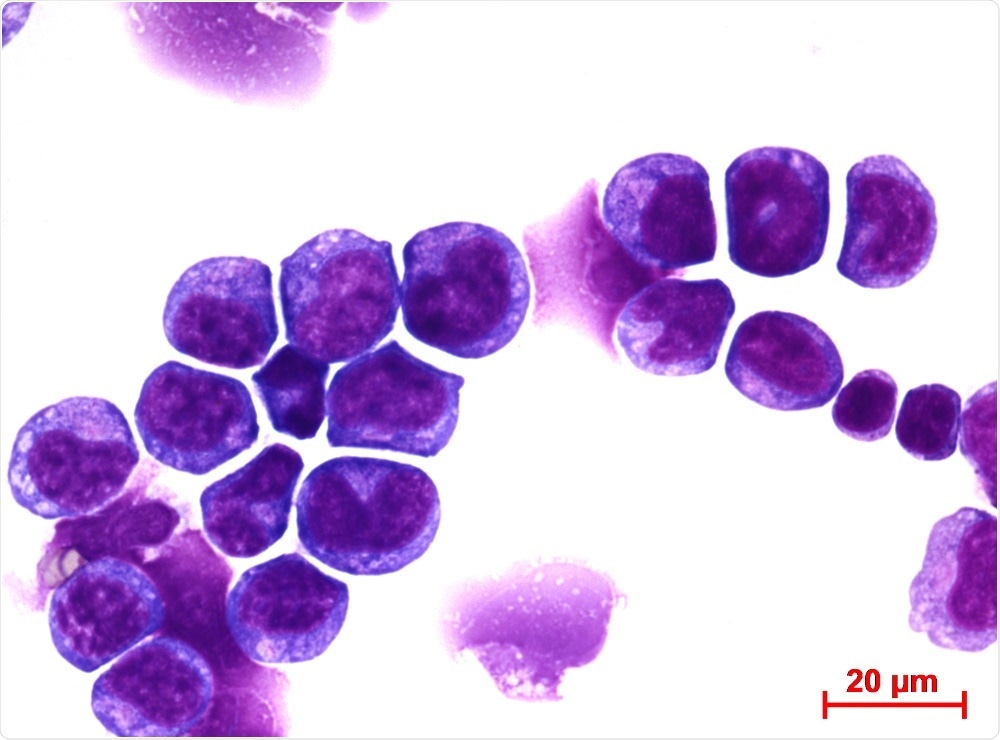Researchers from Cincinnati Children’s Hospital have made important discoveries about the molecular mechanisms driving acute myeloid leukemia (AML), a deadly pediatric cancer. The findings could lead to the development of new treatments.
 MLL-AF9 Leukemia Cells. (Image Credit: Cincinnati Children's)
MLL-AF9 Leukemia Cells. (Image Credit: Cincinnati Children's)
Writing in the Journal of Experimental Medicine, the scientists refer to their findings as representing “a new opportunity for AML therapeutics."
Acute myeloid leukemia is a deadly blood cancer associated with a survival rate of only 20 to 40%and improved treatment approaches are urgently needed.
AML arises when a defect on the chromosome 11q23 changes how white blood cells are genetically programmed, by causing a fusion of harmful genes that makes the cells cancerous.
Now, Leighton Grimes (principal investigator and director of Cancer Pathology at the Cincinnati Children’s) and colleagues have identified a potential new molecular target for treating the illness.
Working with mice and donated human cells from patients, the team were able to identify a target molecule found on the surface of human AML cells.
They found that when they blocked this molecule in combination with existing AML therapies, the cancerous white blood cells were replaced by healthy, regenerating cells.
The therapeutic target is a molecule called S-phase kinase-associated protein 2 (Skp2). This protein degrades another molecule − p27Kip1 − that is required for the formation of healthy blood cells.
Our work provides a complete mechanistic look into the function of genetic and molecular programs driving this leukemia, and it exploits these processes to identify actionable therapeutic targets.”
Leighton Grimes, Principal Investigator
He adds that the approach is not yet ready for clinical application, saying: "We still have extensive additional testing to conduct in laboratory animal models of AML before knowing if this approach will translate to patient care."
Despite the additional work that is needed, the findings do suggest that it may be possible to develop effective treatments for AML, concludes Grimes.
Source:
https://www.eurekalert.org/pub_releases/2018-07/cchm-taf070918.php